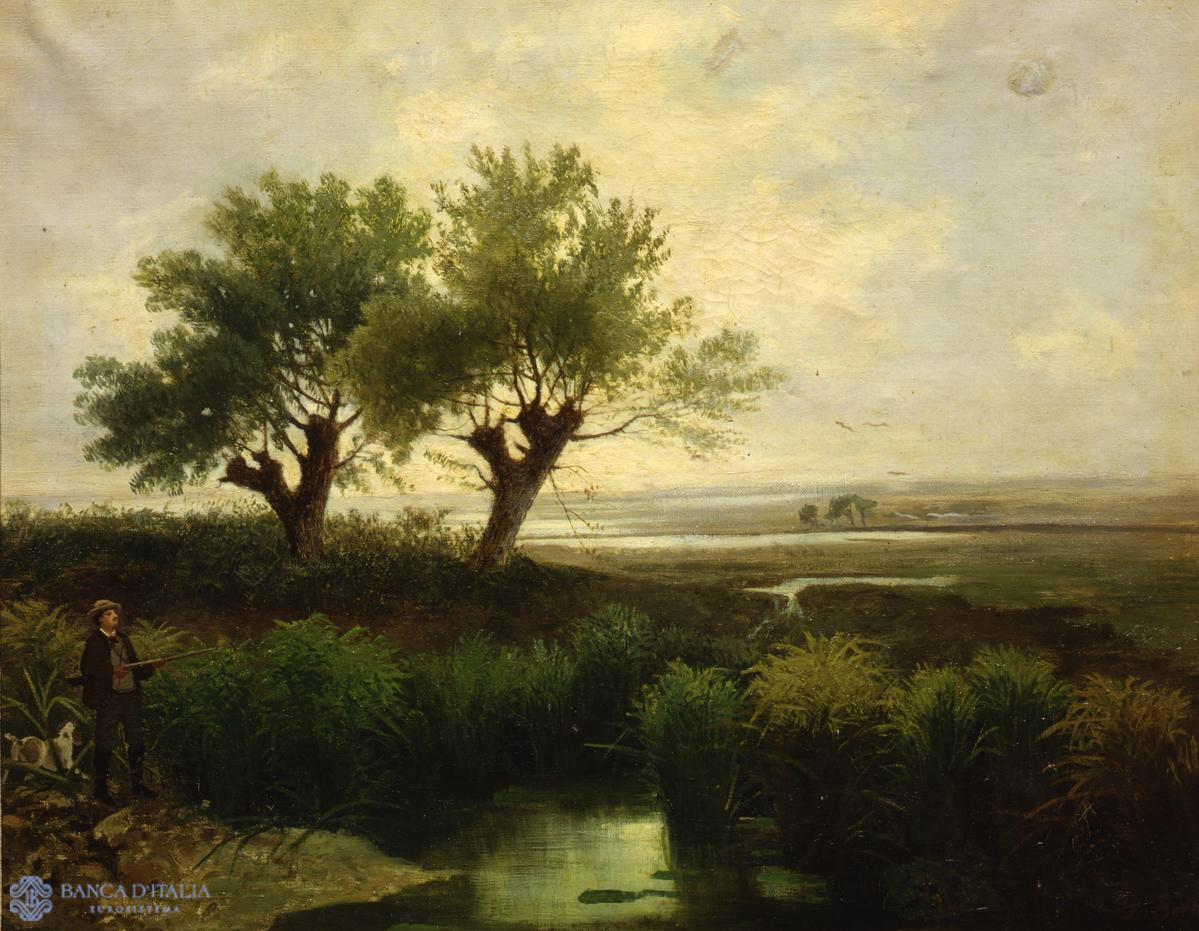Luigi Bertelli (Caselle di Bologna 1832 – Bologna 1916) was in Paris in 1867 during the Exposition Universelle. There, his experience of modern French painting, from the landscape artists of the Barbizon School to the Realists Courbet and Millet, provided him with the basis from which he later carved out for himself a unique place in Italian art.
Bertelli was fully aware that the traditional style of landscape painting had become a thing of the past, both as regards the relationship between nature and human emotions and in terms of the effects of light in its many variations.
In Bologna, where artistic production reflected a weary form of academicism, Bertelli encountered many difficulties, both economic and arising from the complete failure of art critics to understand his objectives. Despite these problems, Bertelli never wavered in his purpose. His Bolognese landscapes or views of Lombardy’s lakes reflect Bertelli’s vision of nature as a living force, its materiality throbbing with an obscure but powerful force, to which the artist surrenders with serene abandon.
After a long period during which Bertelli’s painting attracted little attention, today it has become the focus of more careful consideration and rightful appreciation.
Luigi Bertelli
Luigi Bertelli (Caselle di Bologna 1832 - Bologna 1916)
19th century AD


